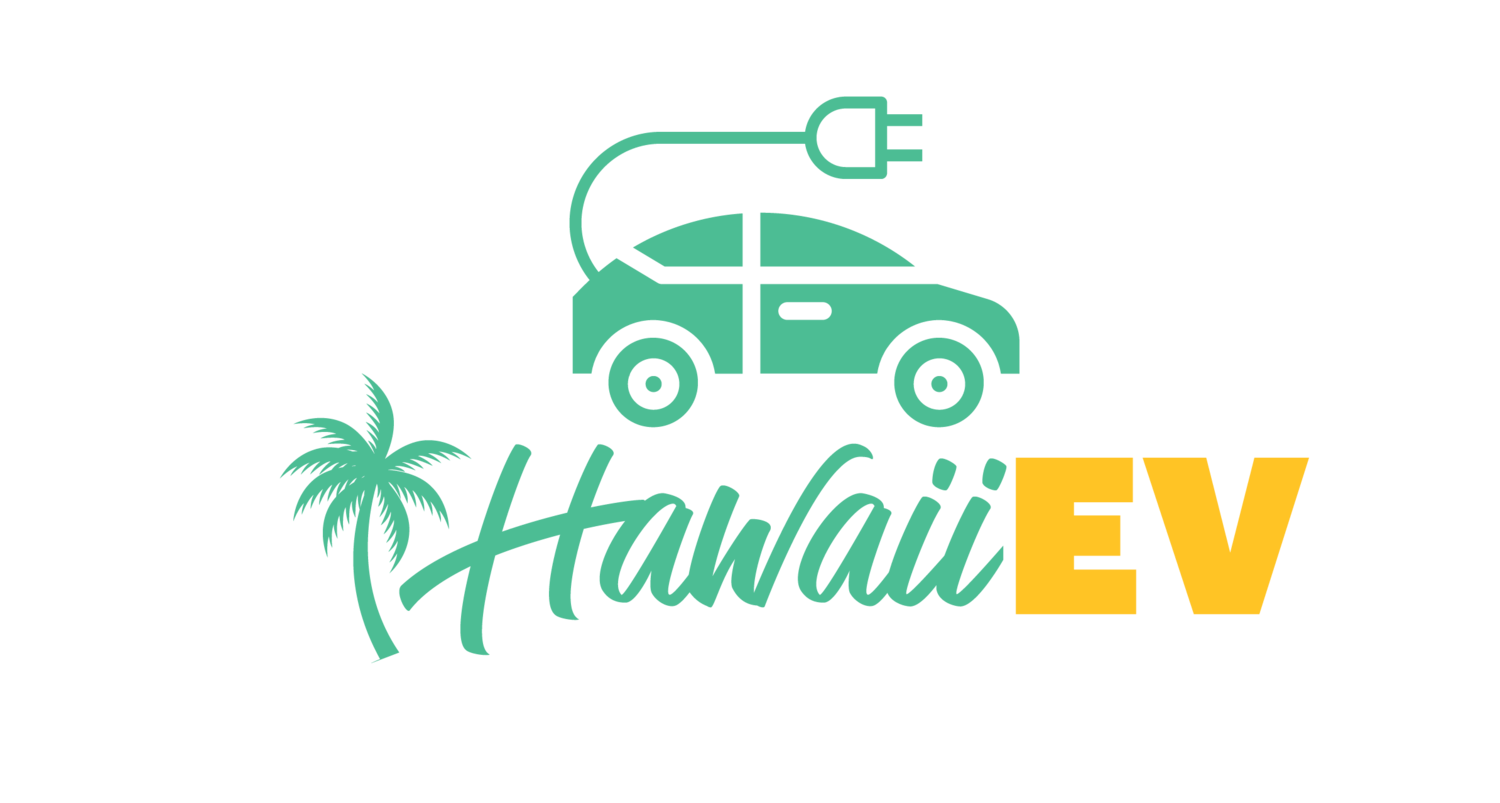
An Opportunity to Clean Up Heavy Fleets
Our clean transportation transition has focused primarily on passenger cars. However, a smaller number of vehicles – medium and heavy vehicles like freight trucks, buses, and port equipment contribute a disproportionate amount of pollution. They have a significant impact on local air quality. They often operate extended hours, often in communities already suffering from higher pollution and associated health burdens. Cutting diesel near schools, along bus routes, and in port areas is a public health investment and a climate win.
The Hawaiʻi State Energy Office’s Diesel Replacement Rebate program is a tool to tackle this problem.

Hawaii is Getting Another NEVI Fast Charger. Good News for Maui EV Drivers!
Hawaiʻi is adding another essential piece to its fast-charging network – a DC Fast Charging Hub at Kapalua Airport on Maui. This will be the third fast charging hub funded through the National Electric Vehicle Infrastructure (NEVI) program. It follows the NEVI hubs at the Kahului Park and Ride on Maui and the Aloha Tower Marketplace on Oʻahu. This addition is welcome in West Maui and will support residents and visitors alike.
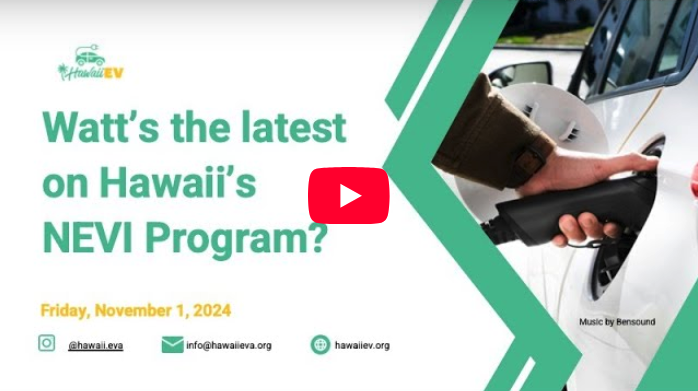
Watt’s up with Hawaii’s NEVI Chargers?
Did you know Hawaii is installing a 44 DC Fast Charger network?
That’s forty-four 150kW Fast Chargers in eleven charging hubs. Two hubs have already been deployed and work is in progress for the others.
The program is led by Robin Shishido, Deputy Director for Highways at the Hawaii Department of Transportation. He joined Hawaii EV to share information about the program and address questions regarding the schedule, equipment, and the NEVI initiative.
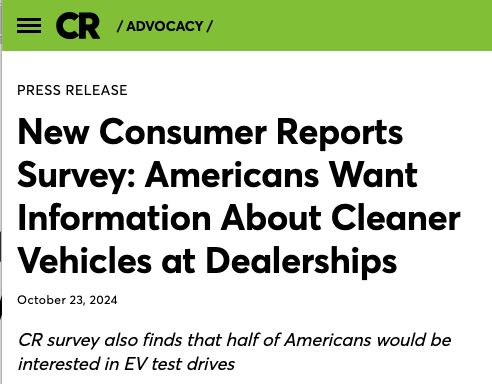
Dealers: Your next customer may be a test drive away!
I came across a Consumer Reports survey that reveals that many consumers are eager to test drive an electric vehicle (EV) when visiting a car dealership, even if they are not interested in an EV at the time. As many EV owners know, the hands-on experience driving one is a key factor in purchasing one. The driving experience - acceleration, quiet and smooth ride - and the many other benefits (lower maintenance and fuel costs and zero tail-pipe pollution) help consumers decide to make their next vehicle electric.
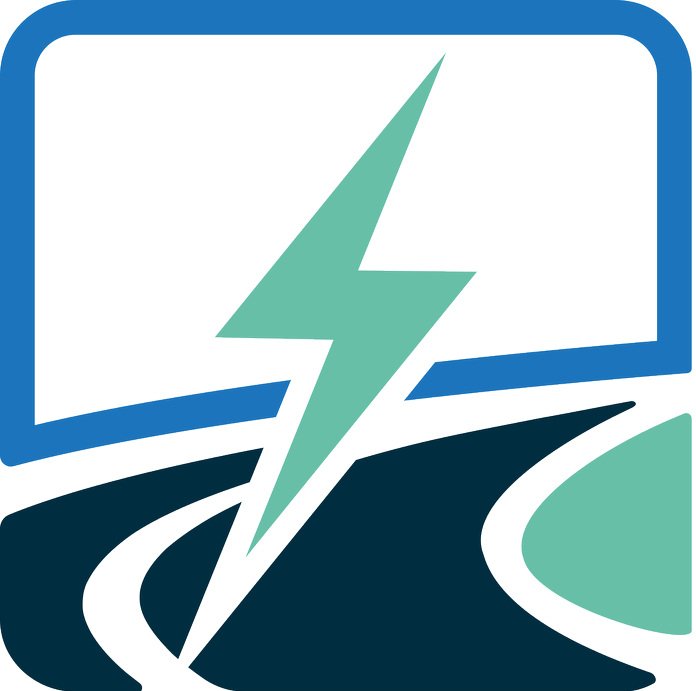
National Drive Electric Week is almost here!
Hawaii EV is celebrating National Drive Electric Week - September 27 - October 6 - with events across the State. We are partnering with Drive Electric Hawaii and other partners to promote the importance of sustainable transportation, particularly electric vehicles, in accelerating our transition to a clean, sustainable future.
Through our chapters (Kauai EV, Maui Nui EV,Big Island EV, and our newly formed Oahu EV team), Tesla Hawaii Club, and partners, we ensure that communities across the state will participate in the celebration and learning opportunity.
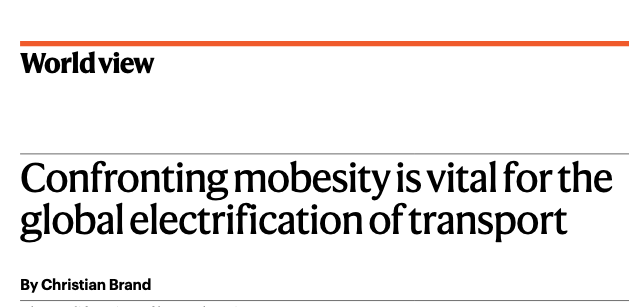
“Mobesity” Threatens Sustainable Transportation Journey
Hawaii EV has highlighted the need to ‘right-size’ our EV purchases. While this may have been challenging in the past, there are many options today – from tiny cars to trucks and SUVs – so there is an EV for just about any need. Right-sizing, a strategy that also applies to gas cars, simply means buying a vehicle that is fit for purpose – not too small or large. An electric vehicle that is too big will mean spending more than is necessary, using more electricity than required, replacing tires more frequently, and contributing to a larger environmental footprint.
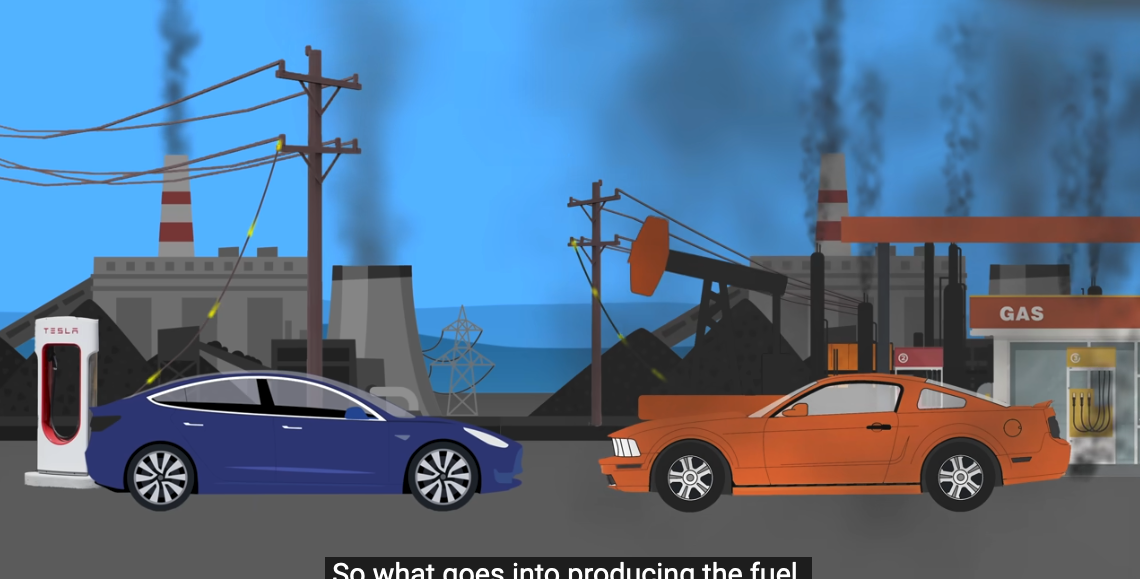
“EVs are bad for the Environment”
We’ve heard it time and time again—FUD (fear, uncertainty, and doubt) that casts a negative shade on the electric vehicle. This has resulted in consumer skepticism about EVs and a drag on the movement to transition our transportation system from the archaic, inefficient, and polluting internal combustion engine framework to the simple, modern, and efficient electric vehicle.
Here are other examples of this nonsense:
“EVs run on electricity, and the electricity grid is powered by fossil fuel, so your EV is not as clean as my hybrid.”
“ EVs are expensive and only for the rich.”
“EVs run on electricity, and electricity is expensive, so it will be expensive to charge EVs.”
“ EV batteries will are worse for the environment.”
Fortunately, there is an abundance of facts to counter these myths and misconceptions. A Google search will reveal many articles highlighting the facts that dispute common misconceptions and misrepresentations about EVs. Several are listed below.

Good news for VW fans!
This just in: The VW ID.4 qualifies for the $ 7,500 federal tax credit! Thanks to domestic manufacturing (in Tennessee) and their utilization of SK On batteries (manufactured in Georgia), the ID.4 is now on the list of EVs that qualify for the full credit.
Image courtesy of Andrea De Santis.
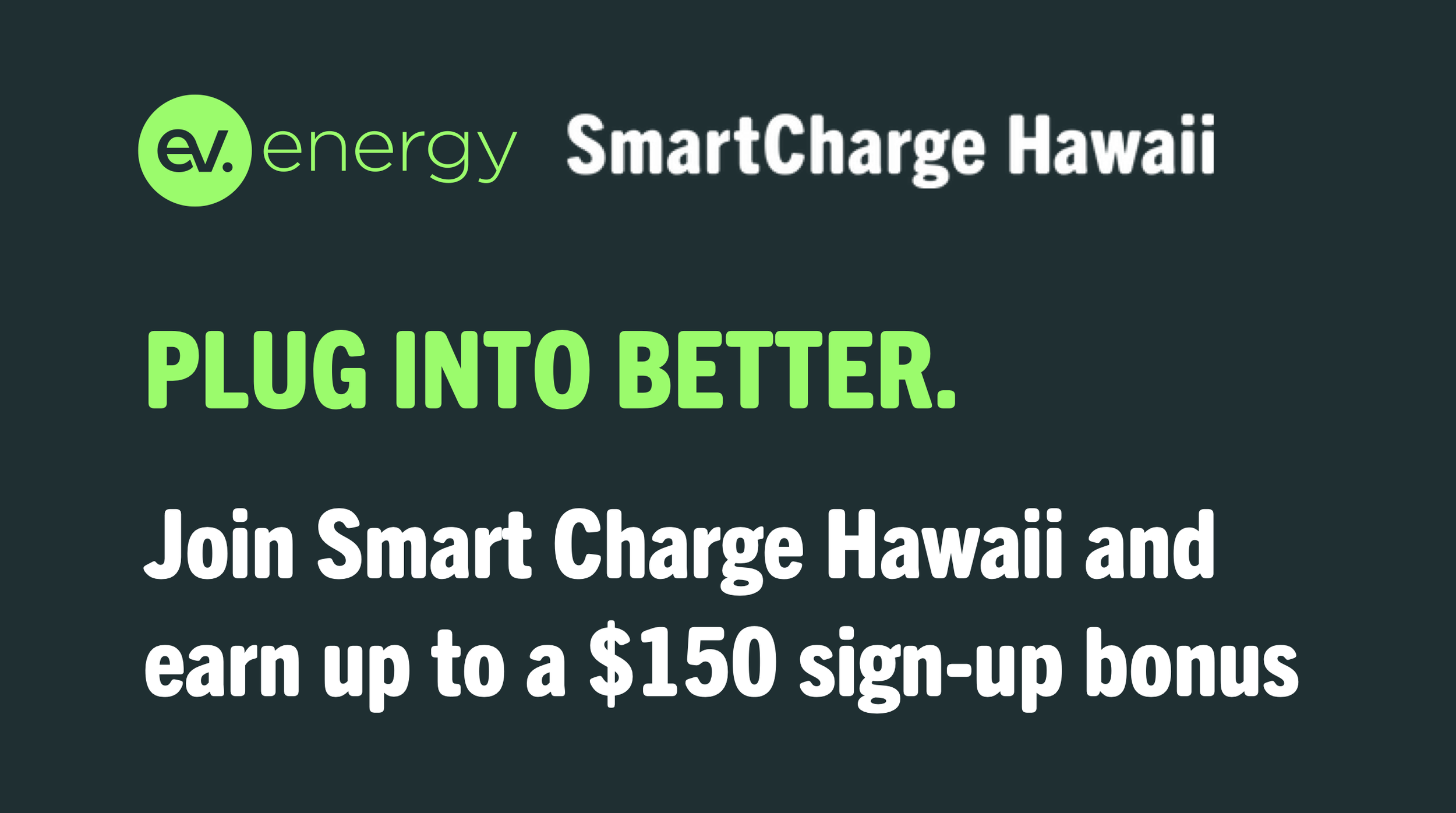
Enroll in Smart Charge Hawaii today
Enroll in Smart Charge Hawaii today
The Smart Charge Hawaii program, accessed via the ev.energy app, allows eligible electric vehicle drivers to track home charging costs and earn rewards for sharing EV charging data to improve power grid reliability across the islands. Sign up to earn your $75 enrolment incentive, plus an additional $75 completion bonus after 12 months on the program.
The ev.energy app is available for free to all Hawaii residents on iOS or Android. The app works by wirelessly connecting to an integrated EV or charger.
